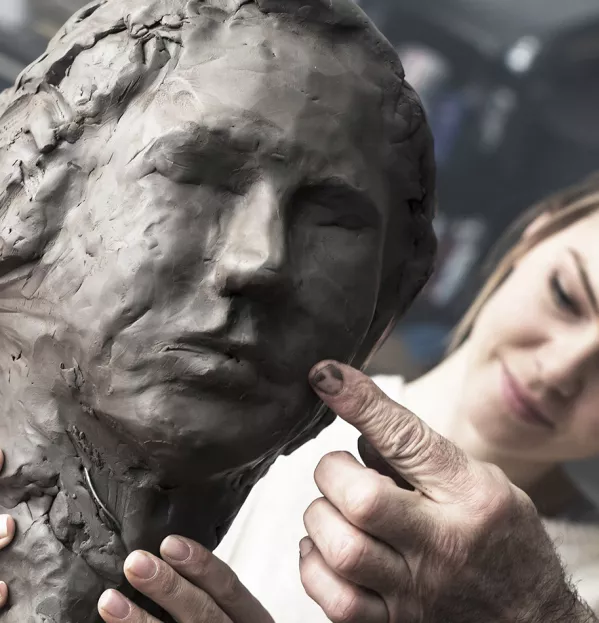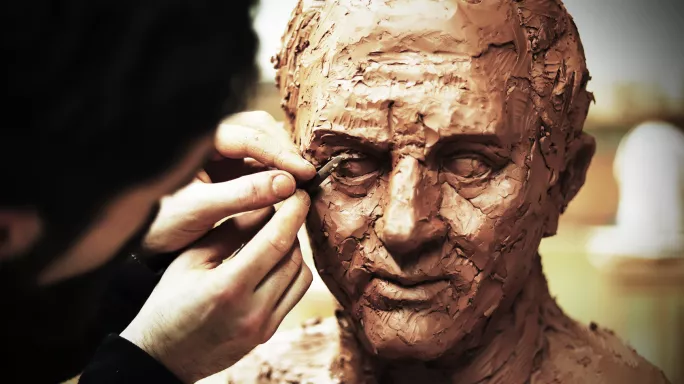
- Home
- Teaching & Learning
- General
- The struggle to spot (and develop) effective teachers
The struggle to spot (and develop) effective teachers

Just what is it that makes an effective teacher? It’s a question that has occupied researcher Matthew A Kraft for decades.
He’s currently associate professor of education and economics at Brown University in the US, and has published more than 40 papers exploring questions around education and effectiveness, from the effect of teachers on cognition and social-emotional competency, to the how prestige of the profession has changed over the past 50 years.
He also knows the classroom first-hand, having worked as a teacher in public schools in Berkeley in California.
We caught up with him to hear about what his research has taught him about the profession and how research is evolving our understanding of the nuance of effectiveness.
Tes: How has our understanding of effectiveness in teaching changed in the time you have been researching this area?
Matthew A Kraft: In the research community, we used to talk about people being “strong teachers” or “weak teachers”, with policy decisions being based on how you try to find those stronger teachers, or how you try to assign teachers based on their ability to different contexts in schools.
But there’s been a whole host of research now that has helped us to understand that this sort of simplistic view is just not accurate.
Teachers have a whole range of different skills and competencies, and they sometimes differ in their ability to, say, support pupils in learning more traditional content - so, maths and reading - as opposed to their ability to motivate kids to show up to class every day to combat chronic absenteeism, or to help them with their mental and emotional health and wellbeing.
And so I think we have [now realised we need] to see teachers holistically, recognising multi-dimensional effectiveness.
Does the context we put the teacher in affect those competencies?
We know that teaching is an act that’s absolutely interdependent with the pupils they work with and the schools in which they do their craft.
A teacher may be successful in a context where they have a supportive principal and colleagues who collaborate and offer constructive feedback and a school culture that supports rigorous academics, for example.
But, if you were to transfer that same teacher to a different school environment where there aren’t a lot of shared norms and cultures around expectations, upholding behavioural rules, high-quality instructional resources and so on, that same teacher might have far less success.

We also know that teacher effectiveness is dynamic; it changes as people gain experience on the job. We have to recognise that the way in which teachers learn and are supported to improve, matters a lot.
On average, teachers do improve meaningfully as they gain experience, particularly in those early years, and that’s something we should lean into. We need to ask how we can find ways to support that growth and unlock it, rather than thinking, “You’re just either a success or not, full stop”.
How far is it possible to measure that growth and development in a meaningful way?
It turns out that measuring the degree to which teachers improve over time is a difficult empirical exercise. But the best evidence suggests that there are what economists call marginal decreasing returns.
This is because an additional year of experience is hugely impactful at the beginning of the career, as you go from no experience at all to having tried all kinds of things. So you’re much better when you show up next year - you come prepared.
When does that begin to wane? There was a refrain about a decade ago that teachers stop improving after three years of experience on the job, and research has shown that that’s just not true. That said, we do see the quickest improvements early in the career.
But we also know that teachers can meaningfully persist in that professional growth and improvement when they are working in school environments that support them to engage in ongoing professional learning opportunities that are meaningful, connected to their actual classroom practice and sustained.
There are some teachers who have stalled in their development and we need to figure out why that is, and there are some teachers who are constantly on that upward slope of getting better, so we need to work out what it is about their context that unlocks that continued growth potential.
Are teacher expectations a big part of effectiveness?
Pupils fundamentally want to learn from teachers that they believe care about them, which is explored in an amazing book, 10 to 25: The Science of Motivating Young People by David Yeager.
The core idea is that effective teachers do two things: they have high expectations and they offer high support.
Oftentimes we can find ourselves being that hard-charging teacher with high expectations, but letting pupils sink or swim. At other times, the pendulum swings too far in the other direction, so we’re providing boundless support but not pushing anyone too hard for fear of making them feel like they’ve come up short.
It’s the intersection, the combination of those two things that matters tremendously.
You were a big part of the research in the US around how schools could judge teacher effectiveness - what did you learn about that?
In the US about 15 years ago, there was this huge wave of policy energy around reforming how we approach personnel decisions in education.
Teachers were uniformly rated on a kind of binary scale, satisfactory or not, with a lot of superficial check-box evaluations - checking if the room was organised, if the desks were in a row, if the learning objectives were on the board and so on.

People rightly said that this didn’t reflect the incredible nuance of teaching and learning; it wasn’t focused on instruction and it wasn’t providing detailed assessments of practice so teachers could improve and know where to focus their efforts in that improvement process.
There were some examples in places like Washington DC and Cincinnati where it looked like their more rigorous and intensive evaluation processes were leading to improved teacher performance [see more details in the next answer]. And so there were a lot of federal incentives and sanctions to galvanise support for changing policies and laws related to teacher evaluation [to reflect those more positive examples].
And what happened - based on some research that I’ve done with a whole host of colleagues, and building on work by others - is that those practices were taken up and implemented in ways that didn’t always reflect the intentional design of what we think a high-quality teacher evaluation system might look like.
And so when you look from a national perspective over the last 15 years, we don’t see that those reforms moved the needle on pupil achievement and attainment.
What were the fundamental errors in those teacher evaluation approaches that failed?
One of the biggest shortcomings was that there were no new dollars invested in compensating and rewarding teachers for sustained excellence in the classroom.
All this effort was spent trying to rate teachers and evaluate them, which creates tension in a school building, but we didn’t kind of provide them with the other side of the coin. We raised the bar on rigour, but we didn’t raise the bar on reward.
Also, we essentially tried to both have a program that differentiated performance and was also a professional development program that integrated observation and feedback into the process.
Going forward, I think it would be much more likely to be successful to decouple those two things. It’s possible, but it’s really hard to have a principal who can develop the trust you need to do high-stakes evaluations and provide formative feedback in the same process.
That doesn’t mean there weren’t bright spots, I think there certainly were.
And what we did achieve was to move towards much more instructionally focused and rigorous classroom observation protocols.
So now in most schools, based on those examples in places like Washington, principals are observing teachers more regularly with a rubric that asks them to assess core instructional practices. And that’s a good thing. It provides an opportunity to have conversations around teaching.
But teaching is complex, and any one single metric is not going to capture the full picture of teachers’ work.
How does the recruitment and retention challenge in teaching globally impact effectiveness?
In the US right now there’s a lot of conversation focused on whether we can even staff every classroom with a qualified teacher, and the answer is no. There are shortages in certain areas and subjects that we can’t always fill.
But I think that the focus on teacher shortages really distracts from a much bigger conversation, which is whether we are getting the best and brightest to want to enter the profession.
The bar should not be that we have fully-staffed classrooms, it should be that every parent thinks that the teacher in front of their kids is the very best teacher for them. And that’s going to take a lot of work.
It’s going to take changes to the amount that we pay teachers, but also the design of compensation systems to help get teachers to the spots where they’re most needed. It’s going to take changes to how we finance teacher education, and it’s going to take changes to the ways in which, as a society, we value and talk about the work that teachers do.
These are generational changes - anyone saying ‘I’ve got the policy to fix it today’ is going to be sorely mistaken and disappointed - but that doesn’t excuse us from engaging with that work, because it is necessary.
What would you say is the key thing for people to remember around teacher effectiveness?
We have to recognise that we need to be committed to sustained and incremental improvement that over time can really shift the dynamic and improve the overall success of our teacher workforce.
We know that we can’t boil down a teacher into a simplistic uniform measure of their performance. It is much more complex, and we have to design our teacher pipeline to recognise that how we recruit, select, develop, evaluate and retain educators has to reflect the multiplicity and dynamism of the profession.
Matthew A Kraft is associate professor of education and economics at Brown University
For the latest research, pedagogy and classroom advice, sign up for our weekly Teaching Essentials newsletter
topics in this article



